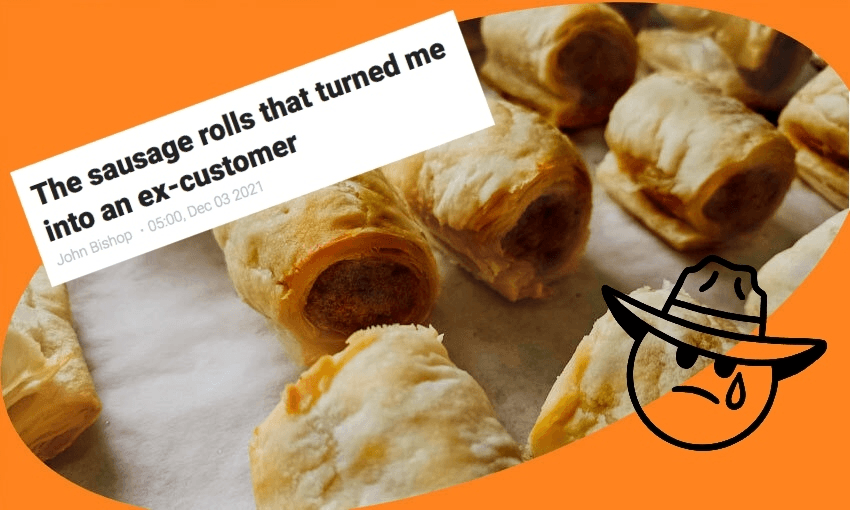You didn’t mind that I didn’t leave any for you. But you minded that I didn’t seem to care.
Dear John,
I’m so sorry, I didn’t know.
I thought I was the only one who visits the petrol station downtown and orders sausage rolls from the hot food cabinet. I thought I was the only one who likes their sausage rolls, even though they are mass-produced. How was I to know that you visit three times every six weeks? How was I to know that you ask about the (lack of) sausage rolls, perhaps mere moments after I have left with the last one?
I’m so sorry. When I am getting petrol and I fancy a snack, I buy a sausage roll. The pastry is soggy and the meat is lukewarm, but I still eat it because I want to help the business. And when I see that there are none left, I say “don’t bother getting some put out” to the person behind the counter because it seems like a tough job and how many people care about the petrol station sausage rolls anyway?
I am so sorry. I didn’t know.
I wish you had told me. We have both been buying petrol from the same station for 20 years. I too have dabbled with other brands and tempting discounts and, like you, I always return to the hot food cabinet. We have probably even been there at the same time. Seeing each other reflected in the glass, just two people asking so little of the world but a sausage roll. Perhaps we could have even been friends.
I know that you are “not sad, angry or upset about it” but I kind of get the feeling that you are, just a little bit. And I’m sorry.
You did, however, claim that they “got more of [your] custom than anyone else”. I have to dispute this because while we were all buying petrol and coffee, I was the only one buying sausage rolls.
You are right that customers of petrol stations have choices. We all make hundreds of choices a day. I’m sorry that my choice (to buy five petrol station sausage rolls every day) has led to the complete dissolution of your sense of self. If I had known, I would have left one for you. I would have told the woman behind the counter being paid something close to minimum wage to please not shrug at the man asking about the sausage rolls. I would have told her to listen, empathise, spend a lot of time explaining what happened, and then make a fresh one by hand.
I’m sorry it took writing an op-ed in a national media outlet for this to come to my attention. I feel ashamed and distraught that your complaint wasn’t passed on to me by the station staff (because I assume you spoke to them first before being forced into this national dispute).
I know you will no longer be supporting our downtown petrol station, and I’m sorry you will lose 20 years of loyalty programme points as a result, but morals and dignity must not be ignored as we move through this one life of ours. You have left a hole in my heart with your departure. A hole that can only be filled with rolled sausage.
I hope you hear “thanks for telling me” at least once a day for the rest of your life. I hope you are never shrugged at again. I hope you find another sausage roll. I’ll leave one in the hot food cabinet next time, just in case. And if it’s gone by the time you arrive? Sad.





